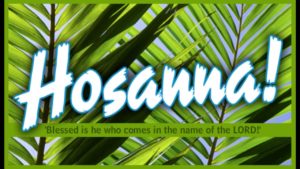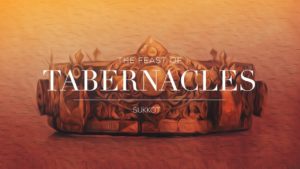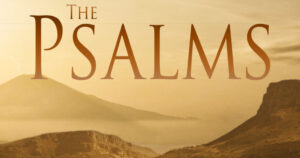Psalms 118 – Messiah Characteristics
Psalms 118 probably comes in a close second behind Psalms 22 in getting the most attention for Messiah prophecies in Psalms, but for opposite reasons. Psalms 22 is front and center because of its controversial nature being consistent with a Roman crucifixion described in the Gospels.
Attention for Psalms 118 is likely the result of its uncontroversial components defining the characteristics of the Messiah.[1] Common ground is found with Judaism and Christian authorities; a renowned Jewish Rabbi sage; and even Jesus of Nazareth – all recognize Psalm 118 defines characteristics about the Messiah.
Judaism regards Psalms 118 as the concept of salvation pointing to the arrival of the Messiah and, in fact, is part of the traditional Jewish Hallel.[2] A stalwart modern-day Jewish authority says of Psalms 118:[3]
“The Psalm verses recited have been interpreted by the Rabbis also as referring to the advent of the Messiah (see Midr. Teh. to Ps. cxviii. 17, 21, 22; comp. Matt. xxi. 42).” – Jewish Encyclopedia
“Hallel” in Hebrew means “praise” and is comprised of Psalms 113-118. Levites recited the Hallel during the Passover sacrifice and it continues to be recited or chanted during the family night celebration of Passover and other Jewish holidays.[4]
Sukkot, also known as the Feast of Booths or Feast of Tabernacles, is one of the three annual pilgrim festivals required by the Law handed down to Moses. Often referred to as the “season of our Rejoicing,” the holiday serves dual purposes.
One celebration of this Feast is to commemorate the Hebrews emerging from the 40 years of wondering in the Sinai wilderness where they had lived in temporary shelters or tents called tabernacles (booths).[5] Celebrating the harvest is the other function of the holiday.

Historically, during each day of the Sukkot festival, a marching procession would wave branches of palm, myrtle and willow.[6] Seventh and final day of Sukkot is called “Hoshana Rabbah” meaning “Great Salvation.”[7]
On the final day of Sukkot, a reduced version of the Hallel is chanted.[8] Originating from Psalms 118:25 is the Hallel phrase, “Anna Adonai hoshi-‘ah-nna,” shortened to a single word, “hosanna.”[9]
Tracing back to ancient Jewish tradition, “hosanna” is the customary joyful shout of celebration. “Hosanna” is the same word shouted by the crowd when Jesus entered Jerusalem riding on a donkey the Sunday before he would be crucified.
JN 12:12-13 “The next day a great multitude that had come to the feast, when they heard that Jesus was coming to Jerusalem, took branches of palm trees and went out to meet Him, and cried out: “Hosanna! ‘Blessed is He who comes in the name of the LORD!’ The King of Israel!”” (NKJV)
All four Gospel authors write about that day considered in Christianity to be a triumphal event now known as Palm Sunday.[10] Jewish Encyclopedia confirms the account in the Gospel of John:
“According to John xii. 13…which has the story preserved in its original form, the same cry was raised by the multitude on the occasion of Jesus’ arrival at Jerusalem. They “took branches of palm-trees, and went forth to meet him, and cried, Hosanna: Blessed is he that cometh in the name of the Lord”—that is, the verse following “Anna Adonai hoshi’ah-nna” in the Hallel psalm — and then called him “the King of Israel.” – Jewish Encyclopeda
Part of the backstory to John’s account of the triumphal arrival Jesus into Jerusalem involved the incident recounted in Luke‘s Gospel of a previous encounter with the Pharisees when they warned Jesus that Tetrarch Herod Antipas was seeking to have him killed. Not concerned, Jesus responded by foretelling a future event quoting from Psalms 118:26:
LK 13:35 “…assuredly, I say to you, you shall not see Me until the time comes when you say, ‘Blessed is He who comes in the name of the LORD!’”” (NKJV)
PS .118:26 “Blessed is he who comes in the name of the LORD! We have blessed you from the house of the LORD.” (NKJV)
Leading up to his prophecy, Jesus told a parable about a winery rented to tenants by the landowner. Twice the owner sent his servants to collect the rent from the tenants and both times they were harshly rebuffed and beaten.[11]
On the third attempt, the owner sent his only son thinking they would surely respect him, but the tenants actually killed his son. Interpreting the meaning of the parable, Jesus quoted Psalms 118:22-23.[12]
MT 21:42 Jesus said to them, “Have you never read in the Scriptures: ‘The stone which the builders rejected Has become the chief cornerstone. This was the LORD’S doing, And it is marvelous in our eyes’? (NKJV)
PS 118:22-23 “The stone which the builders rejected Has become the chief cornerstone. This was the LORD’S doing; It is marvelous in our eyes.” (NASB, NJKV)
Jewish sage Rabbi Rashi wrote his famed commentaries of the Scriptures about a millennium later. In his commentary of the Micah 5:1(2) Bethlehem Messiah prophecy, broken down phrase by phrase, Rashi interpreted the meaning of one phrase of Psalms 118:22:[13]
“from you shall emerge for Me: the Messiah, son of David, and so Scripture says (Ps. 118:22): “The stone the builders had rejected became a cornerstone.” – Rabbi Rashi
Was the Messiah referenced in Psalms 118 referring to Jesus?
Updated July 4, 2025.
This work is licensed under a Creative Commons Attribution-NonCommercial-NoDerivatives 4.0 International License.
REFERENCES:
[1] The Complete Jewish Bible with Rashi Commentary. Chabad.org. n.d. <https://www.chabad.org/library/bible_cdo/aid/63255/jewish/The-Bible-with-Rashi.htm> Jewish Publication Society (JPS) translation. 1917. Benyamin Pilant. 1997. <http://www.breslov.com/bible> Last accessed 20 Apr. 2021.
[2] “Salvation.” Jewish Encyclopedia. 2011. <https://jewishencyclopedia.com/articles/13051-salvation>
[3]“Hosanna.” Jewish Encyclopedia. 2011. <http://jewishencyclopedia.com/articles/7893-hosanna>
[4] “Passover Sacrifice.” Jewish Encyclopedia. 2011. <https://jewishencyclopedia.com/articles/11934-passover-sacrifice> “Hallel.” Jewish Encyclopedia. 2011. <https://jewishencyclopedia.com/articles/7800-hodu> “Holy Days.” Jewish Encyclopedia. 2011. <https://jewishencyclopedia.com/articles/7814-holidays> Posner, Menachem. “What is Hallel?” Chabad.org. 2021. <https://www.chabad.org/library/article_cdo/aid/4181720/jewish/What-Is-Hallel.htm>
[5] Deuteronomy 16:9-17. Leviticus 23:33. Bogomilsky, Moshe. “Our Season of Rejoicing.” Chadbad.org. 2022. <https://www.chabad.org/library/article_cdo/aid/2829274/jewish/Our-Season-of-Rejoicing.htm> Pochtar, Israel. “Sukkot – The Feast of Tabernacles.” VoiceofJudahIsael.” n.d. <https://www.vojisrael.org/2020/09/30/sukkot-the-feast-of-tabernacles> “The Meaning of the Feast of Tabernacles.” OneforIsrael. May 31, 2016. <https://www.oneforisrael.org/holidays/the-meaning-of-the-feast-of-tabernacles> Hosanna Rabbah. ABQ Jew. image. 2014. <https://2.bp.blogspot.com/-WPtRkzzKUhA/VDLtx5O_rPI/AAAAAAAANEE/Yrwuot1ltN4/s1600/Hoshanna%2BRabba.jpg>
[6] “Hosanna.” Jewish Encyclopedia. 2011. Rich, Tracey R. “Sukkot.” JewFAQ.org. 2011. <http://www.jewfaq.org/holiday5.htm> “What is Sukkot.” Chabad.org.>
[7] Lawrence, Natan. HoshanaRabbah.org. “Origin of “Hoshana Rabbash.”” 11/15/2019. <https://hoshanarabbah.org/blog/2019/11/15/origination-of-hoshana-rabbah> Rich. “Sukkot.”
[8] “Hallel.” Jewish Encyclopedia. 2011. “Hosanna.” Jewish Encyclopedia. 2011.
[9] “Hosanna.” Jewish Encyclopedia. 2011. “Salvation.” Jewish Encyclopedia. 2011. “Sukkot.” Jewish Encyclopedia. 2011. <https://jewishencyclopedia.com/articles/7814-holidays> Psalms 118:25. BibleHub.com. Lexicon. 2021. <https://biblehub.com/lexicon/psalms/118-25.htm>
[10] Matthew 21: 9, 15; Mark 11:9-10; Luke 19:35-39; John 12:12-13.
[11] Matthew 21:33-40, Mark 12:1-8, Luke 20:09-16.
[12] CR Mark 12:10; Luke 20:17.
[13] Micah 5:1. The Complete Jewish Bible with Rashi Commentary. <https://www.chabad.org/library/bible_cdo/aid/16191/showrashi/true> “Rashi.” Your Dictionary. n.d. <https://biography.yourdictionary.com/rashi> “RASHI Biography.” OxfordChabad.org. n.d. <https://www.oxfordchabad.org/templates/articlecco_cdo/aid/329653/jewish/RASHI-Biography.htm>



